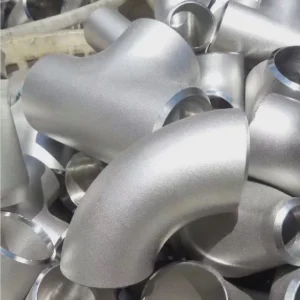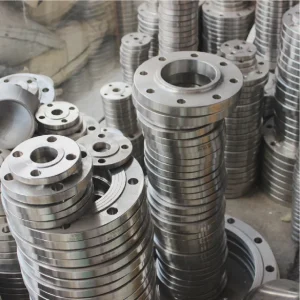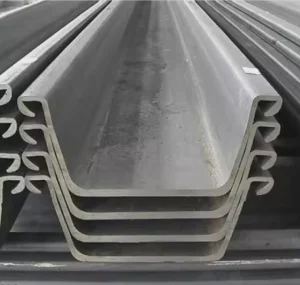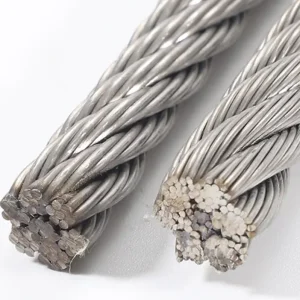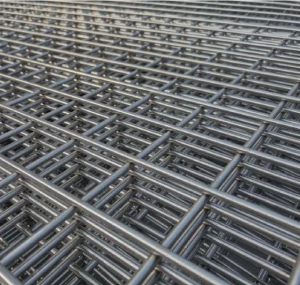ASTM B211 aluminum bar pricing in 2025 spans a very wide range depending on order size, alloy and temper, form (cut length vs. full stock), and origin: retail small-cut pieces in the U.S. commonly price tens of dollars per kilogram (often $50–80/kg for typical 6061 small-cut items), mid-volume distributor pieces are in the $15–30/kg band, while bulk import/wholesale offers from overseas found in 2025 commonly range roughly $1.1–$2.2 per kilogram (USD/ton figures converted). These differences are driven primarily by scale, processing (cold finish vs. extruded), alloy selection (2024/7075 vs. 6061/6063), and the supply-chain costs (tariffs, freight, and inventory handling).
What ASTM B211 covers
ASTM B211 is the American standard that specifies requirements for aluminum and aluminum-alloy bars (round, square, hexagon, and flat) produced by forging, extrusion, or cold drawing. The standard sets dimensional tolerances, chemical limits, and references suitable tempers (T-designations) and other manufacturing notes; it is commonly cited in aerospace, general engineering, and machining supply contexts. Suppliers frequently state “meets ASTM B211” on product pages for 6061, 2024, 7075 and related bar stock.
Common alloys and tempers often supplied to ASTM B211
We see the following alloys regularly sold to the ASTM B211 specification:
-
6061 (T6 / T651 / T6511): Balanced strength, weldability, and machinability; the most commonly stocked general-purpose bar.
-
6063 (T5 / T6): Often used for extrusions and architectural sections.
-
2024 (T3 / T4 / T351): Aerospace grade with higher strength; chosen where fatigue resistance is important.
-
7075 (T6): High strength for highly stressed components; more costly.
-
2011 / 2017: Free-machining alloys for turned parts.
Tempers and production method (cold-finished, extruded, or forged) influence mechanical values and price. Suppliers that reference aerospace AMS numbers often cite ASTM B211 in parallel for bar stock.
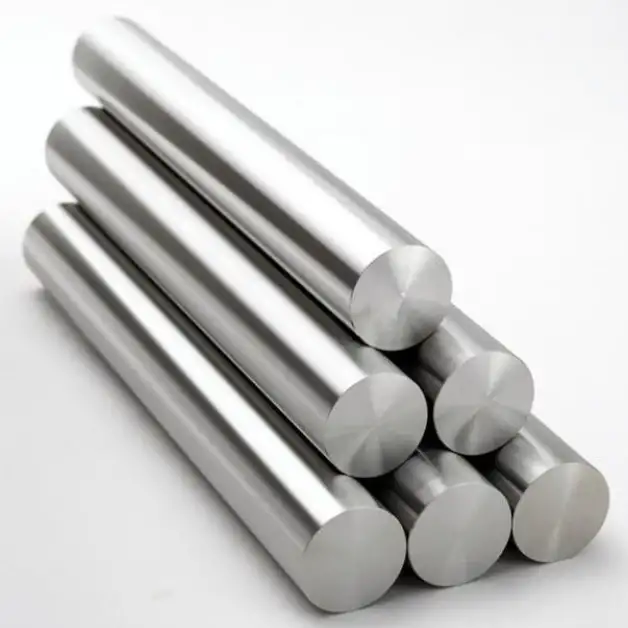
Forms, finishes and how they affect cost
We separate forms and finishes because they change both use and price:
-
Cold-finished (cold drawn / cold rolled): Tighter dimensional tolerances and a better surface finish — typically priced higher.
-
Extruded: Economical for longer lengths and wide cross sections.
-
Forged / rolled: Used for specific applications; cost varies.
-
Cut-to-length vs. full stock: Small cut pieces bought by the foot cost much more per kg than full-length stock due to cutting, handling and packaging overhead.
Practical note: retail suppliers show relatively high per-kg prices because they sell short lengths and cover processing and shipping of many small orders; distributors selling full bars (or buyers in container lots) will see far lower unit prices.
Key drivers of ASTM B211 bar price in 2025
We break price drivers into five practical categories:
-
Base metal cost / LME and scrap: Aluminum raw price moves across months; when the metal market rises, bar prices follow.
-
Alloy and temper: High-strength alloys (7075, 2024) are significantly more expensive than 6061/6063. Heat-treatment and certification add to cost.
-
Section size and yield: Large diameter bars are more efficient to produce per kg; small precision rods are costlier per kg.
-
Processing & testing: Cold finish, straightening, NDT, and certified mill test reports (MTRs) add cost.
-
Logistics, tariffs & inventory: Freight, customs duties, and warehousing add a region-dependent premium to delivered price.
We recommend buyers break quotes down into alloy/temper, finish, certification level (MTR / NADCAP / AMS if needed), and delivery condition to compare offers properly.
2025 market snapshot — prices and channel comparison
Below is a concise comparison using documented supplier examples and wholesale price lists from 2025. These are representative examples converted into USD/kg where possible; they illustrate the scale gap between small-cut retail, distributor stock and bulk import/wholesale offers.
| Channel / Example | Alloy / Size (example) | Quoted Price (example) | Approx. USD per kg (converted) | Notes |
|---|---|---|---|---|
| Retail (US small-cut supplier) — OnlineMetals | 6061, 1.25" dia × 12" | $37.55 | ~$57.09 / kg | Small cut, cold finish; price per small piece and weight shown on product page. |
| Retail (US specialty stock) — BuyMetal-type listing | 6061, 1.75" dia × 12" | $96.33 | ~$75.39 / kg | Example of higher diameter small piece pricing; volume discounts available on multiples. |
| Industrial distributor (large-section, stock) — Fastenal | 2024, 4" dia × 12' | $1,521.10 | ~$18.99 / kg | Distributor full-length pricing on a 12-ft 4" bar — shows mid-channel pricing. |
| Wholesale / Import price list (2025) — Maxsteels market list | Generic imported round bar (various alloys) | USD $1,080–2,200 / ton | ~$1.08–$2.20 / kg | Broad imported bar price band (tonne basis) often used as bulk reference. |
| Global online wholesale (small MOQ sellers / trade platforms) — supplier samples | 6061, small dia | $1.60–2.20 (per unit on listing) | ~$1.60–2.20 / kg (indicative) | Trade platform ranges and sample factory listings showing extremely low unit costs at bulk MOQ. |
Interpreting the table (short): retail small pieces are expensive per kg because buyers pay for cutting, processing and fulfillment; distributor full-length bars are substantially cheaper per kg; true bulk/tonne imports are cheapest per kg but require minimum order quantities and acceptance of logistics lead time.
Important: the examples above are snapshots from supplier pages and market lists in 2025 intended to illustrate ranges and calculation methods — always request a formal quote with alloy/temper/finish/MTR and freight terms for precise ordering.
(We pulled the retail small-cut pricing example from OnlineMetals and larger distributor examples from Fastenal and other stockists; broad import price lists were taken from market price lists showing USD/tonne ranges for imported bar stock.)
How we price and quote at luokaiwei
We use a transparent, componentized approach:
-
Material base cost: current billet/ingot or scrap index appropriate to the alloy.
-
Processing factor: extrusion vs. cold-drawn vs. turned; tight tolerance adds processing cost.
-
Certification and testing: standard MTRs are included; additional testing (e.g., PMI, tensile test pieces, hardness charts) billed separately.
-
Quantity discount curve: price per kg declines rapidly above certain thresholds (carton/coil → pallet → container → full-truck → full-container load).
-
Packaging & export handling: wooden crates, palletizing, fumigation, and paperwork (COO, commercial invoice, packing list) included in DAP/CIF terms as requested.
-
Freight & duty: we present EXW, FOB, CIF and DAP options with separate freight and duty lines so buyers can compare landed costs.
We recommend buyers provide: alloy & temper, exact dimensions, required length (cut-to-length vs. full bar), inspection/cert needs, target incoterm, and delivery country to get a firm quote.
Buying checklist & QA (what we check before shipment)
We suggest the following to reduce risk and ensure conformity:
-
Confirm alloy and temper: request the mill designation (e.g., 6061-T6) and any AMS references for aerospace uses.
-
Ask for MTRs: MTRs show chemical and mechanical test results traceable to production heat/lot — insist on original mill test reports.
-
Dimensional tolerances & finish: call out ASTM B211 tolerances or custom tolerances in PO.
-
Third-party inspection (optional): pre-shipment inspection (e.g., SGS, BV) for large orders.
-
Sampling and testing: for critical parts, request tensile coupons, hardness tests, or PMI at loading.
-
Packaging & labeling: ensure each piece or bundle is labeled with heat/lot, alloy and temper.
These steps reduce non-conformity and disputes, especially on large OEM or aerospace orders.
Logistics, lead times and trade points
-
Typical lead times: domestic stocked items — days to weeks; extruded or cold-finished new runs — several weeks; container orders from China — 4–10+ weeks including production and shipping depending on backlog.
-
Minimum order quantities: many factories quote per-tonne MOQ; platform sellers might accept small MOQs but at higher per-unit price.
-
Customs & duties: some destination countries levy anti-dumping duties or higher tariff codes for certain alloys — verify with your customs broker.
-
Insurance: recommend CIF or DAP with insurance for large shipments.
-
Packaging: bars are bundled, strapped and often wooden-crated for export; ask for fumigation certificates if wooden crates are used.
Typical mechanical and chemical snapshot
We present brief, typical data points commonly used when specifying bars to ASTM B211. These are representative; always verify the actual MTR for a purchased lot.
6061-T6 (typical, rounded):
-
Tensile strength: ~290–310 MPa.
-
Yield strength: ~240–270 MPa.
-
Elongation: ≈10–12%.
-
Chemistry highlights: Si ~0.4–0.8%, Mg ~0.8–1.2%, Cu ≤0.15% (balance Al).
2024-T3 (typical):
-
Tensile strength: ~430–485 MPa.
-
Yield strength: ~325–350 MPa.
-
Chemistry highlights: Cu ~3.8–4.9%, Mg ~1.2–1.8%.
7075-T6 (typical):
-
Tensile strength: ~560–640 MPa.
-
Yield strength: ~490–540 MPa.
-
Chemistry: Zn ~5.6–6.1%, Mg and Cu present.
(These figures are for guidance only — the delivered MTR is the contractually binding record.)
Application guidance: choose alloy by need
We give quick selection rules we use when advising buyers:
-
General machining & structural parts: 6061-T6 (balance of machinability, weldability, corrosion resistance).
-
High-strength airframe or critical rotating parts: 2024 or 7075 (but check corrosion and heat-treatment implications).
-
Architectural extrusions or moderate strength: 6063.
-
High-volume turned components: free-machining 2011 can offer cost savings.
Always include post-machining processes (anodizing, shot peening) in the landed cost estimate if required.
FAQs
Q1: What determines whether a supplier quotes per piece, per lb, or per ton?
We find that small retailers quote per piece or per foot (because cutting and handling dominate), distributors often quote per lb or per piece for standard sizes, and mills/wholesalers quote per ton or per kilogram for bulk shipments. Ask for the unit and the basis (gross/net weight) in every RFQ.
Q2: Are MTRs always included?
Not always. Many reputable suppliers include standard mill test reports (MTRs) by default for aerospace or export orders, but you should explicitly request them and confirm the format and language.
Q3: How much cheaper is buying by the container?
Substantially: our examples show retail small cuts at tens of dollars per kg, distributors in the $15–30/kg band, and bulk imports near $1–2/kg. The gap is due to process overheads and freight economies of scale. Plan MOQ and warehousing before committing.
Q4: How do I compare quotes from a local stockist vs. an overseas mill?
Ask for EXW / FOB / CIF price lines, MTR inclusion, lead time, warranty and inspection terms. Add freight, duty, and internal handling to the overseas quote to compute landed cost; compare that to the distributor’s delivered price.
Q5: When is ASTM B211 specifically required?
ASTM B211 is normally referenced whenever bars must meet recognized dimensional, metallurgical, and manufacturing controls. Aerospace, defense, and high-precision machining users will often require it or associated AMS specs tied to the bar stock.



